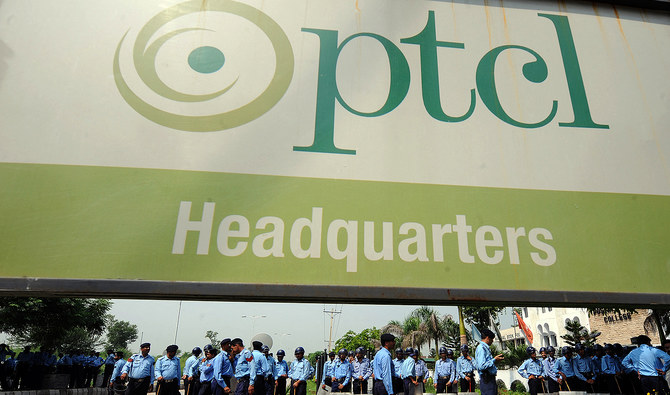KARACHI: The United Arab Emirates and Pakistan are expected to resolve a long-standing payment dispute involving $800 million in privatization proceeds from the Pakistan Telecommunication Company Limited (PTCL), with the administration in Islamabad hoping to find a solution to the problem in the “next few weeks.”
Pakistan privatized its national telecommunication company in 2005 through a bidding process in which the UAE’s Etisalat emerged as winner, acquiring 26 percent of stakes in the company along with the management control for $2.6 billion.
However, Etisalat withheld $800 million, with the issue remaining unresolved for the last 18 years. The UAE telecom giant withheld the payment while saying Pakistan had not yet transferred some 3,400 properties to it as part of the privatization agreement.
Out of these properties, around 33 remain in dispute, as Pakistani officials say the determination of their value is still a key issue.
“The Ministry of IT has a dispute with Etisalat and PTCL. The dispute is that the value of these 32 or 33 properties is yet to be determined,” said Syed Amin-ul-Haque, the country’s minister for information technology, while exclusively speaking to Arab News on Friday.
The minister said talks with Etisalat were continuing, in which the ministries of finance and law and justice were also involved.
“Our meetings were held over the last few days, and the process of dialogue goes on,” he continued. “I understand that as the UAE is a brotherly country and we have good relations, we wish that the issue be resolved through dialogue.”
“I also believe that within the next few weeks, any solution to this dispute will be sorted out,” he added.
It may be recalled that the UAE telecom giant offered Pakistan around $300 million back in 2020 after deducting around $500 million against the properties. A similar offer was also made last December, though Pakistan rejected it.
With the recent massive devaluation of Pakistan’s national currency, the minister said the value of the properties had also increased.
“I think there are two, three things. We have linked it with the dollar, and the value is increasing with the rising dollar rate, which has gone up to Rs280,” he maintained. “Simultaneously, PTCL wishes that it should be allowed the commercial use of some places, but the Ministry of IT has shown its resistance.”
The minister said that after the payment of the privatization proceeds, the properties would be handed over to Etisalat.
“We have said that the payment should be made, and around 32 properties have been identified,” he added. “When payment will be completed, around 32 properties will be handed over to them.”












